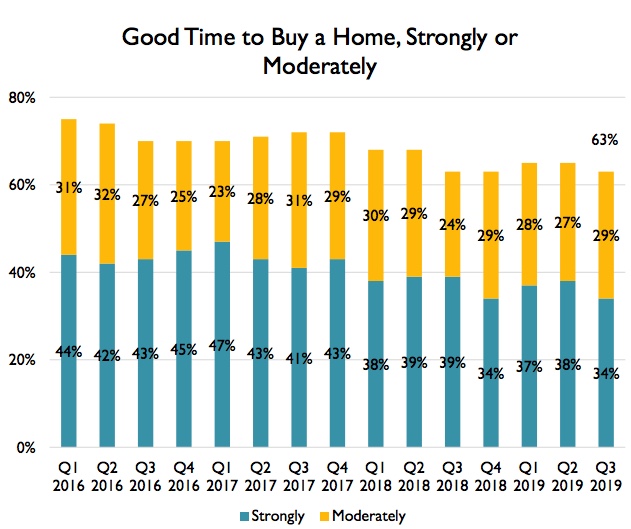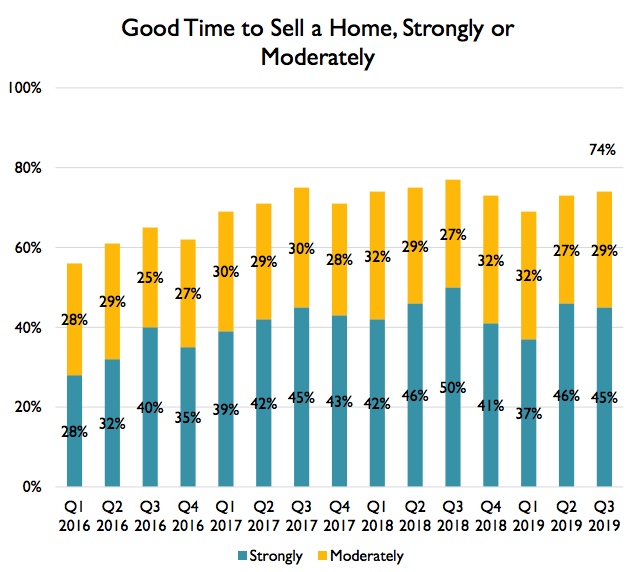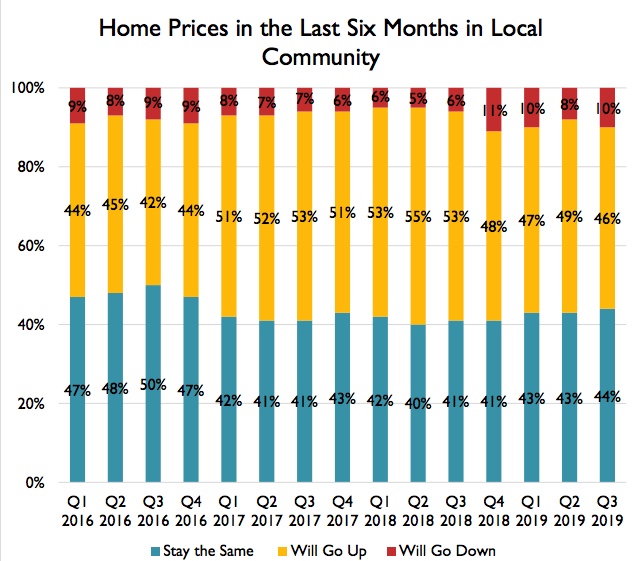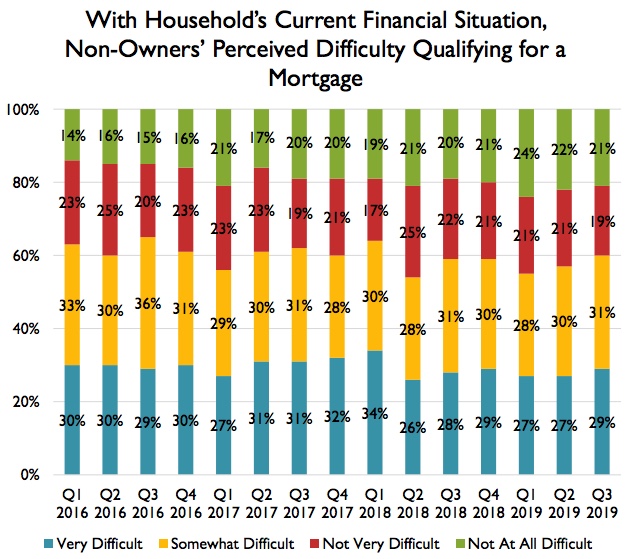The good news from a new National Association of Realtors® (NAR) survey is that a large majority of respondents think it is a good time to buy a home. The bad news is that the largest percentage of those who gave that response are likely to already own one. NAR's third quarter Housing Opportunities and Market Experience (HOME) survey found 63 percent of respondents believing it is now a good time to buy, with 34 percent saying they believe that strongly. This is down slightly from the 65 percent who expressed that sentiment in the second quarter and the 38 percent who felt strongly about their response.

NAR's chief economist Lawrence Yun said the favorable outlook also contains a degree of caution. "Mortgage rates are at historically low levels, so I see no sign of the optimism about home buying fading," he said. "However, the fact that slightly fewer are expressing strong intensity compared to recent prior quarters is implying some would-be buyers have concerns about the direction of the economy."
NAR divides respondents generationally into Millennials (those born after 1997), Gen X (now aged 39 to 52), Younger Boomers (age 64-63), Older Boomers (age 64-72) and those 73 and older called the Silent Generation. Positive homebuying responses were directly in line with those age groupings. The three oldest groups gave positive responses that ranged in ascending order from 70 to 75 percent, however, among Millennials and Gen X, the positive responses were much lower, 49 percent and 51 percent respectively. These numbers are strikingly in line with Census Bureau's estimates of actual homeownership rates among age cohorts.
The positive responses about buying also correlated strongly with income. Of those who have an income under $50,000, 54 percent answered "yes." Answers in the affirmative increased as household incomes increased. In the $50,000 to $100,000 bracket, 64 percent said now is a good time to buy a home, and there were positive responses from 72 percent of those with incomes over $100,000. There was also a location factor. Among rural respondents 73 percent thought it was a good time to buy compared to 64 percent in the suburbs and 54 percent living in an urban area.
"Not surprisingly, as incomes increase, the process of buying a home is less of a strain," said Yun. "This has always been the case, but in this third quarter survey, we see it to an even greater extent - high earners are more open to buying a home."
When asked about their thoughts on selling a home in the current market 74 percent said it was a good time, a 1-point increase over the previous survey, with 45 percent strongly believing so. Those in the West region were most likely to hold this sentiment at 81 percent while in the Northeast only 67 percent of respondents said yes.

These responses also increased with income. Among the lowest income group, 64 percent said it was a good time to sell while in the highest income group 82 percent thought so
Just over two-thirds of respondents believe that home prices appreciated in their communities over the previous year, a slight quarter-over-quarter increase. Twenty-seven percent believe prices have stayed the same and six percent believe prices have gone down. Those who are in the West, those with incomes of $50,000 to $100,000, and Millennials are most likely to report that prices have increased in their communities. However, there was a slight uptick among those who think prices may have stabilized. Forty-four believe that prices will stay the same in their communities in the next six months, 46 percent believe prices will increase and 10 percent believe prices will go down. Those who live in the West, an Urban location, and Millennials are most likely to believe prices will rise in their communities.

Among non-homeowning survey respondents, 29 percent believe it would be very difficult and 31 percent believe it would be somewhat difficult to qualify for a mortgage given their current financial situation. Not surprisingly, this was also income related with 74 percent of those earning under $50,000 saying it would be at least somewhat difficult compared to 28 percent of those earning over $100,000.

Respondents were also questioned about their outlook toward the U.S. economy. Fifty-two percent of those surveyed said they believe the U.S. economy is improving, a decrease from the prior quarter's 55 percent response. Millennials were the most pessimistic at 49 percent while the silent generation was most positive at 54 percent. Forty percent of those in urban areas also believe the economy is improving, compared to 62 percent in rural areas.
NAR surveyed a random sample of 900 U.S. households each month during the third quarter via phone. The data was compiled for this report representing a total of 2,705 household responses.







